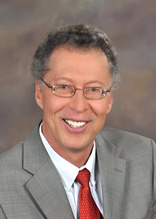‘Changes in regulations must await a demonstrated need.’ This is more than a concept but is the actual practice and the mantra of most governments. In keeping with the principles of government restraint, adopting new regulations must await a serious event which only then calls for new regulations. A preferred ideology is to respond to events after they have happened. Otherwise, it is argued that premature action is experimentation and not the job of government.
Should a state board or a commission appointed by the governor be more than a policeman or a Justice of the Peace? That is the question. Examples are necessary. One must look at what power or authority is given to a board. In this instance I will use two boards and discuss their significance, and present to the reader the legal power granted to them. The state Water Management Board and the Board of Minerals and Environment each consist of citizen members appointed by the Governor, not all of whom may be from the same political party. So the beauty is that these appointees are not lobbyists, government employees or hired guns.
Both named boards have an advisory function giving the public, the legislature and the governor advice, gathering information, and making recommendations. In addition the boards have a rulemaking and permitting function. This is extraordinary in government. A group of citizens is in effect managing environmental and water policy.
How extraordinary this is was borne out by my recent experience. I was privileged to just complete the teaching of a seminar on natural resources and environmental law to Czech law students at a university in the Czech Republic. In the seminar I compared and contrasted South Dakota’s water and natural resources law with that of the Czech Republic. In South Dakota authority for water use permits and mining permits as well as overseeing permit holders and permit holder problems lies with the two citizen boards I mentioned. That’s a lot of power in the hands of appointed citizens of the state, not in the hands of government employees. Some of the seminar students had a hard time appreciating this difference in the law. Their struggle has to do with the fact that all natural resource and environmental laws in their country are controlled by government agencies and its employees — not by boards or commissions.
Is the preferred ideology of responding to events after they have happened the better way to preserve property, prevent loss and prevent harm to the environment? No. I have over the last couple of years provided numerous examples of historical events causing financial or other harm for which state government has provided no adequate response, and have suggested rules which will prevent future harm. These examples can be found in the archives of this newspaper and in the various articles and blogs on my website. The subject of several of my suggestions is the lack of preparedness for accidents, spills or so-called disasters. In almost each instance the suggested points have not been addressed. Alas these boards have the full authority to anticipate such problems and legal authority to act in advance; that is they have the power to make fair, open and public rules. The rulemaking process itself allows for public input. Secret rule making is not permitted. And the boards are not burdened with lawmaking pressures of lobbyists hanging on their every word, interest groups petitioning them with incessant ‘concerns’ and other normal challenges of publicly elected politicians. Boards are blessed with the legal authority to be agents of change in the fast evolving world of environmental and natural resource management. They need to be more than just policemen or Justices of the Peace.
Boards are not using their advisory and rulemaking authority to their advantage and to the advantage of the state. Boards are given the legal framework to propose rulemaking but prefer to manage the status quo. This exceptional citizen rulemaking power does not exist in other governments and in other countries. This is indeed an opportunity squandered.
David Ganje of Ganje Law Offices practices in the area of natural resources, environmental and commercial law





